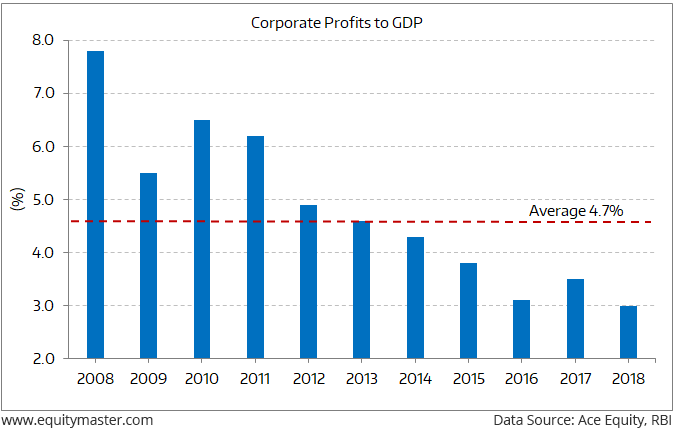Investment in securities market are subject to market risks. Read all the related documents carefully before investing
Grab Our Small Cap Recommendation
Service at a 60% Discount
- Home
- Todays Market
- Indian Stock Market News October 29, 2019
Sensex Ends 582 Points Higher; Automobile and Metal Stocks Rally Tue, 29 Oct Closing
Indian share markets moved sharply higher today, on positive global cues and better-than-expected September quarter earnings. The BSE Sensex zoomed to a 4-month high, up over 660 points intraday, while the Nifty hit the 11,800-mark for the 1st time since July 5.
Investor sentiments were boosted after media reports stated that Prime Minister Narendra Modi and Finance Minister Nirmala Sitharaman are planning a series of tax alignments for equities in the coming weeks.
The government is said to be reviewing current rates of Long-term Capital Gains (LTCG) and Securities Transaction Tax (STT). The government is also considering abolishing Dividend Distribution Tax (DDT), which is by a domestic company at 15% of the aggregate dividend declared, distributed or paid.
Optimism over US-China trade deal and the European Union extending Brexit deadline to 31 January 2020, also boosted sentiment.
At the closing bell, the BSE Sensex stood higher by 582 points (up 1.5%) and the NSE Nifty closed higher by 160 points (up 1.4%).
The BSE Mid Cap index ended up by 1.1%, while the BSE Small Cap index ended the day up by 0.6%.
On the sectoral front, gains were largely seen in the automobile sector, metal sector and energy sector.
Asian stock markets finished on a mixed note as of the most recent closing prices. The Hang Seng was down 0.4% and the Nikkei stood up by 0.5%.
The rupee was trading at 70.86 to the US$ at the time of writing.
Market participants were tracking HDFC AMC share price as the company reported 78.8% rise in its net profit at Rs 3,682.4 million for the September quarter (Q2FY20) as compared to Rs 2,059.1 million for the same quarter in the previous year.
Total income of the company increased by 6.6% at Rs 5,490.7 million for Q2FY20 as compared Rs 5,152 million for the corresponding quarter previous year.
Reports state that the key reasons for this surge in profitability was the reduction in commissions and fees paid to distributors. Net fee expenses were lower by 44% in Q2.
The company's EBITDA margins stood at 91% in Q2 compared with 89% in the year-ago quarter.
However, growth in revenue was lower as asset management fees have been reduced, even as inflows slowed marginally. Revenue rose about 3.5% year-on-year in Q2.
The company has increased its actively managed equity assets under management (AUM) by about 11% YoY to Rs 1.64 trillion. It also managed to maintain market share during the period in the actively managed AUMs at about 15.8%.
Speaking of quarterly results and corporate profits, economic growth (GDP) and corporate profit growth hardly go hand in hand.
Over the past few years, the share of corporate profits to GDP has steadily declined.
This is evident in the chart below:
Rebound in Corporate Profits May Not Immediately Reflect in GDP
As per Tanushree Banerjee, the revival of capex cycle may cause corporate profits to soar much faster than the GDP growth. Investors who stay focused on macro numbers may miss this bus.
Moving on to news from the telecom sector, Bharti Airtel share price witnessed selling pressure today after the company deferred its September quarter results till November 14 saying it needed more clarity on adjusted gross revenue (AGR) matter.
The company was slated to release its financial results today.
In a regulatory filing, the company said the management recommended to the Board of Directors to defer September quarter results announcement till November 14, 2019 on account of the fact that more clarity is needed on the AGR matter arising out of recent judgement of Hon'ble Supreme Court.
The statement added, "the company is approaching DoT to seek clarity on the total amounts involved and request for their support to deal with this adverse outcome."
In a major blow to telecom companies Bharti Airtel and Vodafone-Idea, the supreme court last week ruled that the existing definition of AGR will prevail.
The verdict allows the government to recover Rs 920 billion of AGR from the financially stressed telecom industry that includes many operators who have already gone out of business or are under insolvency proceedings.
The payout by telcos could rise to an estimated Rs 1.3 trillion once spectrum usage charges (SUC) linked to AGR are taken into account.
Industry body Cellular Operators Association of India (COAI) said the ruling will deal a "disastrous blow" to the industry, given its precarious financial condition.
According to the new telecom policy, telecom licensees are required to share a percentage of their adjusted gross revenue (AGR) with the government as annual license fee.
In addition, mobile telephone operators were also required to pay spectrum usage charges for the use of radio frequency spectrum allotted to them.
How all this pan out remains to be seen. Meanwhile, we will keep you updated on the latest developments from this space.
To know what's moving the Indian stock markets today, check out the most recent share market updates here.
For information on how to pick stocks that have the potential to deliver big returns, download our special report now!
Read the latest Market Commentary



Equitymaster requests your view! Post a comment on "Sensex Ends 582 Points Higher; Automobile and Metal Stocks Rally". Click here!
Comments are moderated by Equitymaster, in accordance with the Terms of Use, and may not appear
on this article until they have been reviewed and deemed appropriate for posting.
In the meantime, you may want to share this article with your friends!